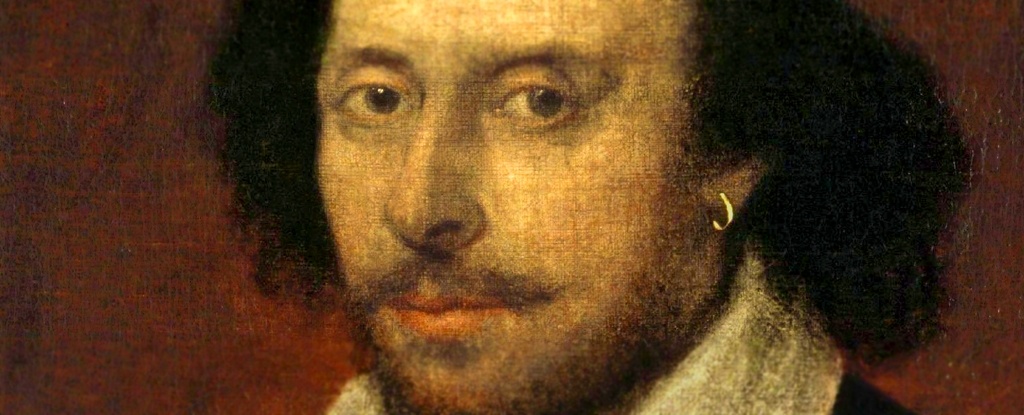Products You May Like
The voice of a woman largely overlooked by history has been discovered in a “dangerous” declaration attributed to the father of famous playwright William Shakespeare.
It’s known as the “Spiritual Testament“, discovered in the rafters of Shakespeare House in Stratford-Upon-Avon in 1757, signed by one J. Shakespeare.
Historians have interpreted this J. Shakespeare to mean John Shakespeare, making the document a shocking one: in it, the author declares a devotion to the Catholic faith, and vows to die a Catholic death.
During John Shakespeare’s life, under the Protestant queen Elizabeth I, this would have been a dangerous heresy. There is just one problem, according to literature professor Matthew Steggle of the University of Bristol. John didn’t write it. Joan did.
That’s Joan Shakespeare Hart, the sister of William, who outlived her brother by 30 years, occupying the Shakespeare house until her own death in 1646.
The reason she is the best candidate to have penned the document, Steggle says, is that quite a large proportion of it was copied from an Italian text called The Last Will and Testament of the Soul, which wasn’t written until after John’s death in 1601.
This discovery – which involved quite a bit of legwork and digging – significantly recontextualizes the document. On the death of Elizabeth I in 1603, James I took the throne of England – a Protestant who nevertheless prided himself on his more relaxed attitude toward religion, and under whom avowals of Catholic devotion were a lot less risky.
But it also gives some insight into a type of woman history tends to forget.
“There are only seven surviving documents from Joan’s lifetime that even mention her by name,” Steggle says.
“Virginia Woolf wrote a famous essay, ‘Shakespeare’s sister’, about how a figure like her could never hope to be a writer or have her writing preserved, so she has become something of a symbol for all the lost voices of early modern women. There are hundreds of thousands of words surviving from her brother, and until now none at all, of any description, from her.”
Studying the “Spiritual Testament” has been a problem almost since its discovery. It was studied and described by Shakespeare enthusiasts in 1784, and then again in 1789. Even back then, in his 1789 description, Shakespeare scholar Edmond Malone noted that the handwriting seemed at least 30 years more modern than John Shakespeare’s death in 1601. He thought it might have been penned by an unknown son that John had named after himself.
Then the document was lost; with only those early descriptions on which to rely, Shakespeare historians have struggled to understand it.
In the early 20th century, religious scholar Herbert Thurston came across a 1661 religious pamphlet that bore startling similarities to the “Spiritual Testament”. This pamphlet, written in Spanish, was attributed to Saint Charles Borromeo, who died in 1584. This would be consistent with the lifetime of John Shakespeare.
But Steggle, working on a biography of Shakespeare, wanted to know more. He went digging through digital archives, looking for early editions of the text in Italian, French, Spanish, English, and other languages. And its first documented appearance was in Italian, in 1613, attributed to Canon Girolamo Verduro and his confessor, Silvestro Ferrari.
This means that John could not have written the document. The only other J. Shakespeare who was known to live in the house at the relevant time was Joan. Indeed, the document even makes mention to Saint Winifred, who, having miraculously recovered from a beheading by a man whose advances she had spurned, founded a nunnery. She was particularly revered by women.
Woolf wrote of the hypothetical sister she imagined for William: “Perhaps she scribbled some pages up in an apple loft on the sly, but was careful to hide them or set fire to them.” It seems her essay was partially prophetic in that regard.
“Despite being the sister of the most famous writer in Western history, Joan Shakespeare Hart is almost unknown; she is truly the “Shakespeare’s sister” of Virginia Woolf’s famous essay of 1925, a figure so trapped by gender conventions that it seems there is no chance of finding anything she wrote or created,” Steggle writes in his paper.
“And yet perhaps there is a profoundly personal statement of her religious faith that had already been in the public domain for over a hundred years at the point that Woolf wrote her essay. If the current essay is correct in its assertion, then it is ironic, and sadly appropriate for Woolf’s thesis, that Joan’s spiritual testament has for all these years been wrongly assigned to her father.”
The findings have been published in Shakespeare Quarterly.
